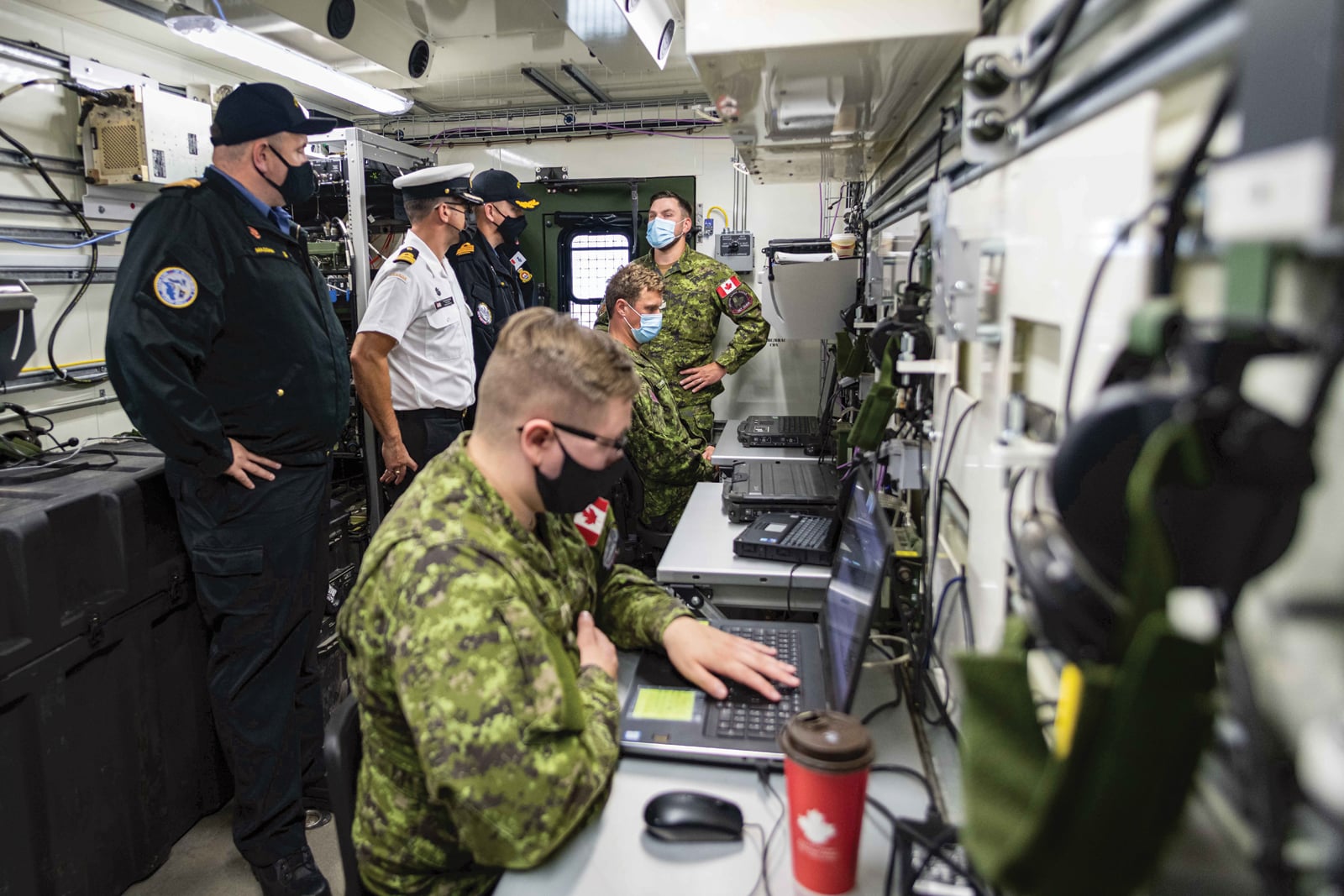
Joint Interface Control Officer candidates and staff at the Joint Interface Control Cell for Ex CUTLASS FURY 21, Osbourne Head, NS. Photo by Cpl Branden Trudeau
PO1 Shawn Quigley
Joint Interface Control Officer
––
“Lose sight, lose the fight” is an old fighter pilot adage that is more valid today than ever before. The speed and complexity of modern warfare continues to grow apace advancements in Defence technologies. State-of-the-art combat control systems rely heavily on Tactical Data Link (TDL) to compile and present the accurate and timely information Commanders need to made to make critical decisions.
TDL networks are complex and require a great deal of planning and coordination to manage successfully, a role assigned to the Joint Interface Control Officer (JICO). The recent Exercise Cutlass Fury 21, a major east-coast joint and combined exercise, was the perfect venue to qualify 10 new JICO candidates from across the Canadian Armed Forces.
Tactical Data Link (TDL-400) JICO candidates are drawn from the RCN, CA and RCAF. This course is the final validation in which the students apply the theory gained throughout the TDL 100, 200, and 300 courses, along with their unique operational backgrounds in the TDL environment. As the students will tell you, their previous experience is never enough to make this course anywhere near easy. After a week in the classroom students transition to the practical phase by creating an entire Joint Interface Control Cell (JICC), from which they controlled data link network for the entire Ex Cutlass Fury. Additional participants included the Medium Range Radar from 4th Artillery Regiment (General Support) and the Aurora’s Deployable Mission Support Centre, connections to the Canadian Air Defence Sector, the ships at sea, aircraft over-head, and Regional Joint Operations Centre (Atlantic); creating an uncommonly rich training environment.
Over two-weeks, JICO students stood watches 24/7, alongside Data Link Operators from the RCAF and RCN. The students were evaluated on their abilities as both JICO and JICC Watch Officers. They were required to demonstrate thorough knowledge of a wide range of hardware, software and procedures key to the TDL environment. Dynamic scenarios challenged each student – at times these were instructor induced but frequently real-world problems emerged that required team problem-solving. The exercise proved a challenging learning experience but, equally important, it helped forge strong relationships amongst the JICO students that they will draw upon throughout their careers. The junior Data Link Operators shared their professional experiences and received mentorship from the students, supporting their development and ensuring the success of the next generation of JICOs.
––––









